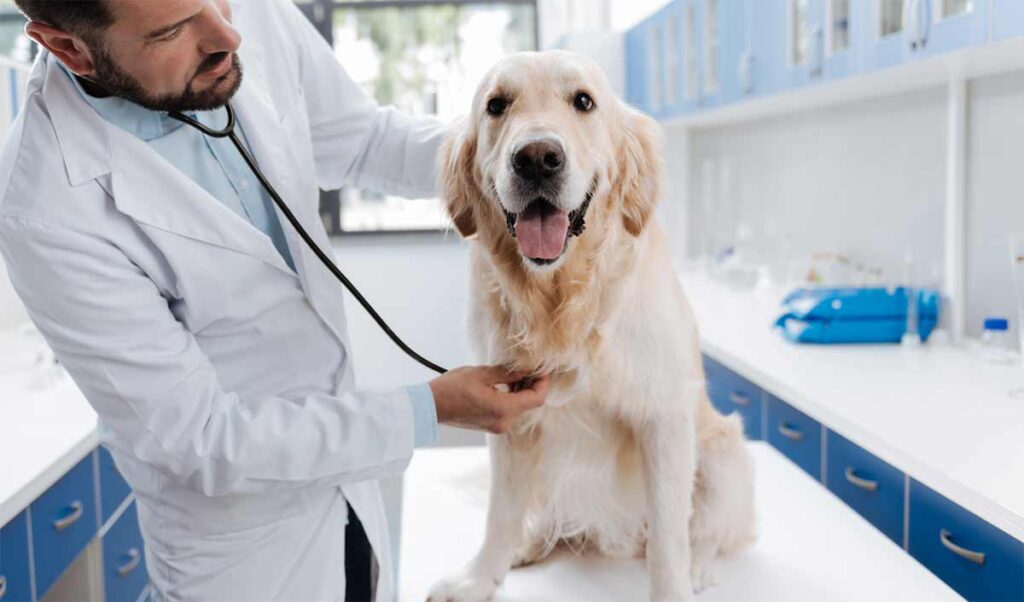Heatstroke
Extremely hot weather can cause heatstroke in dogs and can be one possible reason for your old dog’s panting. Keep your dog away from the sun during the day and well-hydrated to prevent heatstroke.
How to diagnose: A dog suffering from heatstroke will pant abnormally, have red gums, body temperature over 104, increased heart rate, and abnormal thirst. As seriousness increases, dogs can be wobbly, have glazed eyes, or even start having seizures.
Is it serious: Heatstroke can be quite serious and cause life-threatening problems like swelling of the brain, kidney failure, and intestinal bleeding. It’s thought that up to 3 in 10 dogs suffering from heatstroke will die.
How to treat: If you think your old dog is suffering from heatstroke, move them to a cooler part of the house, pour some cool (but not cold) water over them, and give them ice cubes to lick. A fan can be a great help in cooling them down once you’ve wet their fur. If they are showing any more serious signs, you should arrange to take them to a veterinary clinic immediately.
However, two additional common changes often do cause consternation. Old dogs tend to pant more than young dogs. They also are prone to trembling. Over the years, many people have asked me why these two things happen.
Finally, cognitive decline should be considered as a cause of panting in elderly dogs. Panting caused by dementia may occur primarily at night and may be accompanied by restlessness and movement of the dog to atypical areas of the home. However, if your dog suddenly starts exhibiting these behaviors, remember that bloat also occurs most often at night and may trigger restlessness.
Sudden onset of panting may be a sign of a very serious problem. Panting is a common — and sometimes the only — symptom of gastric dilatation with volvulus, also known as GDV and bloat. This condition, which is most common in older, large dogs, is an emergency of the highest order, and it can cause death in hours if not treated appropriately.
Heart disease and breathing problems such as chronic bronchitis, collapsing trachea, and laryngeal paralysis may lead to panting. Glandular conditions such as Cushing’s disease may cause panting as well. Certain metabolic conditions also may cause both panting and trembling. Brain disease may cause panting and trembling.
Although much of the panting and trembling done by older dogs has a benign cause, there is no guarantee that such behaviors in an elderly dog are harmless. Any owner of an elderly dog who pants or trembles should have a vet evaluate his pet.
Top 6 Reasons Older Dogs Pant at Night

So why do dogs pant at night? There are many possible reasons. While some of these are natural or hereditary, many can mean serious trouble for your dog’s health. The top reasons include:
Why Is My Senior Dog Panting At Night?
Itâs normal for dogs to pant, especially when theyâre hot, excited, or energetic. Heavy panting is different, though, and may be a sign your dog is dangerously overheated, coping with a chronic health problem, or has experienced a life-threatening trauma.